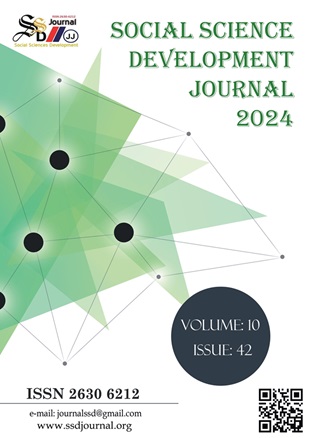WORKER NUTRITION: AN EVALUATION OF THE MEANINGS OF THE CONCEPT
DOI:
https://doi.org/10.31567/ssd.1155Keywords:
Worker Nutrition, Worker, Employer, Factory, FoodAbstract
Worker nutrition is a concept that came to the agenda and gained importance after the emergence of
the industrial revolution. With the emergence of the concept, it has evolved into a nutrition model in
which the employer provides free meals over time, despite the fact that the nutrition model was
formed under the responsibility of the worker with dining halls and dining rooms, which are the
places where nutrition will be provided. Over time, the concept of employer-responsible nutrition
has been on the agenda of states and international organizations due to issues such as occupational
accidents, absenteeism and worker health. Scientific circles have also been affected by this and have
carried out studies especially in the fields of health and science. As a result, nutritional calculations
and tables shaped according to calorie calculations, male and female employees, business lines and
jobs have emerged. Despite these dimensions of worker nutrition, which are the subject of positive sciences, it also has
meanings in social sciences. The concept has different meanings for workers, employers and the
state. In this study, the historical processes and legal regulations of the concept of worker nutrition
from the perspective of social sciences will be examined, while its economic, social and cultural
dimensions will be examined from the perspective of the worker. While the meanings of social and
cultural dimensions for the working class will be discussed, the economic approach of the employer
to the issue will be examined.




